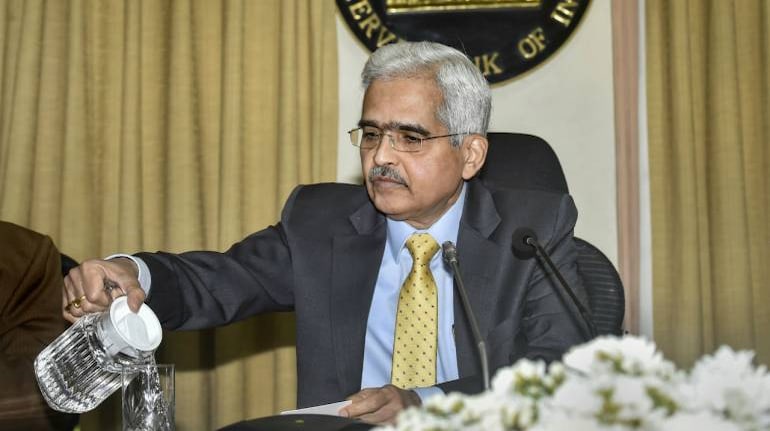



Renu Kohli
At its February 6 review, the Reserve Bank (RBI) took non-standard monetary measures to ease policy without changing the benchmark rate.
Sidestepping the inflation targeting bounds, the central bank announced injection of Rs 1 lakh crore through fixed rate (5.15 percent, the current policy rate) and long-term repo operations (LTROs) of 1- and 3-year tenors.
It incentivised banks for directing credit to specific sectors (MSMEs, housing and vehicles) for six months by freeing them from cash reserves maintenance on such incremental loans (January-July 31, 2020) for five years from their origination or tenure, whichever is earlier.
And it also eased asset quality norms for specific real estate projects and extended for another year the MSME (micro, small and medium enterprises) loan-restructuring scheme operational since last January.
There’s a Seventies’ whiff about the specific, interventionist approach, now called macro-prudential measures for the counter-cyclical use. The context is a fundamental-cyclical mix: Prolonged economic weakness (growth is forecast to improve to 6 percent next year) and above-target inflation until September (projected to decline to 3.2 percent in October-December 2020) with a highly uncertain outlook.
The enduring features are the slow, incomplete transmission of the RBI’s monetary policy to the real economy; rigid liability structure drawing a floor on bank deposit rates; deteriorated asset qualities with large, unresolved NPAs at banks creating risk-aversion and credit curtailment and enhanced financial stress from a troubled non-banking segment, among others.
The regulatory relaxations or forbearance is poor policy. These create moral hazard for future deteriorations of credit profiles, can trigger demands from excluded segments if economic conditions fail to improve, while the regression to discretionary norm-resetting will again create doubts about disclosed asset qualities.
If inflation-growth do not contribute much to debt reduction, these loans may be resolved only through defaults. Encouraging banks for further risky lending is also a concern from the standpoint of financial stability. Reservations on these measures have already surfaced, e.g. rating agency Fitch, which flagged these as retreat to lesser transparency and increased risks for banks, said it will adjust loan portfolio evaluations accordingly, given the past poor record of restructured loan slippages into NPAs (non-performing assets) (FY16 and FY18).
Will the breathers have real effects? It is not clear if MSMEs are too beaten down by repeated shocks such as demonetisation and GST (goods and services tax) and decelerating demand to respond significantly. The 6-month period for directing credit to specified sectors is puzzling - What does the RBI expect to happen in six months? Banks’ investment and lending opportunities have undoubtedly been made more attractive, but riskless sovereign bonds could still remain the more attractive investment option.
The LTROs, intended for transmission of monetary easing to the real economy, come amid a fundamental imbalance between high real returns earned by savers and corresponding high real costs paid by borrowers, whose existing debts have aggravated from low growth and inflation. Banks’ funding costs will ease somewhat from the CRR (cash reserve ratio) exemption and the limited durable liquidity injection. But the full supportive impact of bank lending to households and MSMEs may take several months to become visible in the monetary data.
Evidence from the NYU Stern research on the European Central Bank’s LTRO interventions shows that the riskier banks sought more funds and increased their holdings of risky sovereign debt, illustrating that real economic betterment can be difficult if bank balance sheets are impaired. Another study finds evidence of increased cash holdings of non-financial corporations in response to liquidity injections, but without any significant rise in real investment subsequently.
The sole reaper of bypassing competitive market pricing through LTROs will be the government, should banks choose to not throw more good money after bad and seek safety in government bonds. It is in good need of such support - the LTROs at below-market rates follow the RBI’s ‘twist’ auction exchanging short-term debt sales with long duration bond buys, and some direct monetisation of the deficit through cheaper loans from the central bank (Ways & Means advances) in the past few weeks although this could be a temporary mismatch.
Fiscal dominance is on the rise and the adverse inflation-growth dynamics betrays urgency: The differential in the growth rate of nominal GDP and interest rate on government debt has raised risks to the deficit and existing stock of public debt, which jumped to 50.3 percent of GDP in FY20, from 48.4 percent last year.
The direct control of yields is not without risks. Long-term yields remained stubbornly high due to fiscal pressures, increasing disconnect between nominal interest rates and inflation. The manipulation of the yield curve could result in diluting their informational content relative to their underlying risk profile, the decoupling of interest rates and risk (albeit limited), and uncertainty about future interest rate movements, contrary to the predictability guaranteed by an inflation targeting regime. These need keen watch ahead.
Renu Kohli is a New Delhi-based macroeconomist. Views are personal.
Discover the latest Business News, Sensex, and Nifty updates. Obtain Personal Finance insights, tax queries, and expert opinions on Moneycontrol or download the Moneycontrol App to stay updated!
Find the best of Al News in one place, specially curated for you every weekend.
Stay on top of the latest tech trends and biggest startup news.